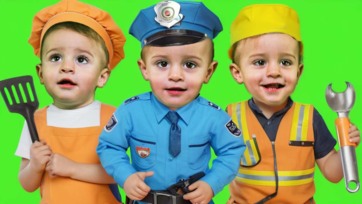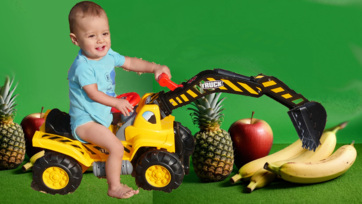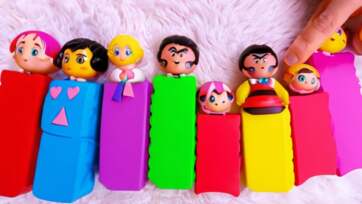Best Games and Activities to Help Your Child
Even as early as 12 to 18 months, children begin to show the first signs of reasoning. As they grow, their ability to think logically becomes more apparent — though the pace of this development varies from child to child. Each child’s path to logical thinking is shaped by their unique experiences and environment.
When toddlers begin to recognize colors, shapes, faces, and pictures — and as they start to walk and explore — they enter a new phase of learning. However, at this stage, their decisions are still driven mostly by preferences, not logic.
What Is Logical Thinking and Why Is It Important?
Logical thinking is the process of drawing conclusions based on sensory input (what we see, hear, touch, etc.), patterns, order, relationships, and attributes. It’s a vital skill that children will use daily — at school, in social situations, and in problem-solving.
Even if they can’t express themselves clearly yet, children learn by observing. For instance, if a child notices that their hands are dirty, they’ll eventually seek a way to clean them. This shows how they begin to make logical connections.
As a parent, your support plays a big role. Logical thinking grows through experience — and proper nutrition also supports this process behind the scenes. A well-fed child can develop their cognitive skills faster and more effectively.
Activities to Build Logical Thinking in Toddlers
When your toddler starts asking “why?”, that’s your cue to engage. The more meaningful questions you ask in return, the more their curiosity will grow. Here are some creative and simple activities that boost logical reasoning.
1. Pretend Play
Imaginative play allows children to express what’s in their minds by connecting it to the physical world. It helps them understand symbols and representation.
Try this:
Give your child a mix of items — toys, blocks, pillows, old clothes, cardboard — and let them create their own world. Their stories and roleplay help develop thinking skills.
2. Sorting and Grouping
Sorting is a fun and effective way to teach logic. Use colorful toys of different shapes and sizes and encourage your child to group them by similarities.
Try this:
-
Let your child separate white clothes while doing laundry.
-
Ask them to put animal toys in one box and building blocks in another.
-
Give them beads of various colors and sizes to sort into piles.
These games improve attention, memory, and categorization skills.
3. The Power of Questions
Children between ages 2 and 6 often have endless questions. That curiosity is a gift — and your patient, clear answers help develop their reasoning.
Try this:
-
When your child puts a jacket on a stuffed animal, ask: “Why did you do that?” Let them explain, then guide the conversation gently.
-
Ask questions during everyday routines: “What are you eating?” “What does that toy do?” “Is that yes or no?”
This practice helps kids stay present and reflect on their surroundings.
4. Nutrition Matters
A child’s diet affects not just their body but also their brain. Nutrients like DHA, iron, choline, and folic acid support mental growth. If mealtime is a struggle, make it fun!
Try this:
Show your child brightly colored fruits and vegetables while making happy sounds and expressions. Offer two healthy choices — this builds confidence and encourages healthy habits. Good nutrition fuels logical thinking!
5. Sequencing Activities
Learning to follow a sequence helps children understand cause and effect, and strengthens attention.
Try this:
Line up a few toys or objects. Give simple instructions like:
“Make a train. Start with the car, then place the bunny with big ears, and put the yellow block at the end.”
This teaches order and how to follow steps clearly.
6. Treasure Hunts
Games that combine physical activity with mental challenges are excellent for development.
Try this:
Create a path using large X-marks around the house. Hide healthy snacks along the way. Encourage your child to follow the Xs to the “treasure.”
This boosts both logic and excitement!
Final Thoughts
These fun activities help toddlers strengthen their logical reasoning while also improving memory, attention, and problem-solving skills. However, every child is different — so always consult your pediatrician if you’re unsure about your child’s developmental progress.




